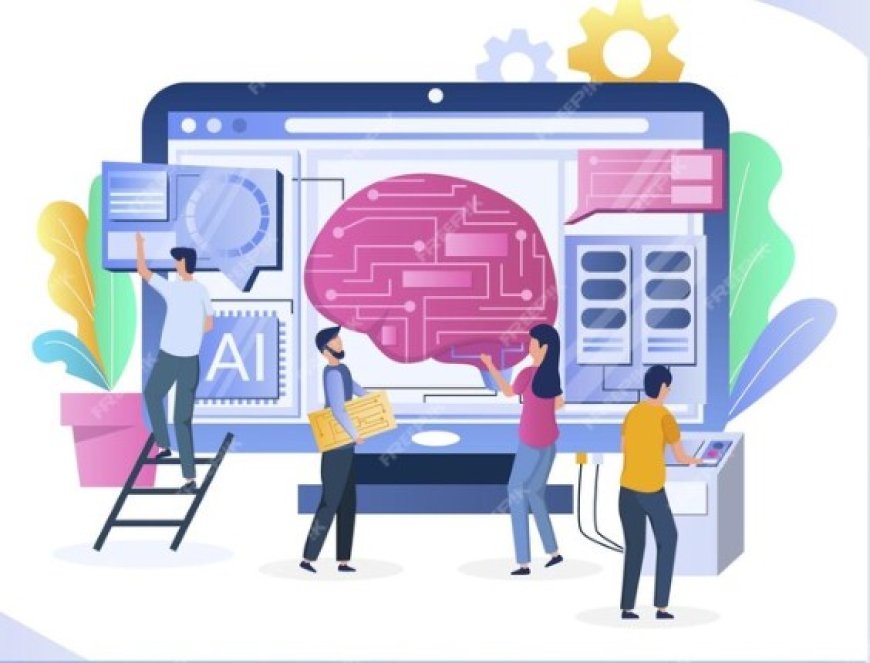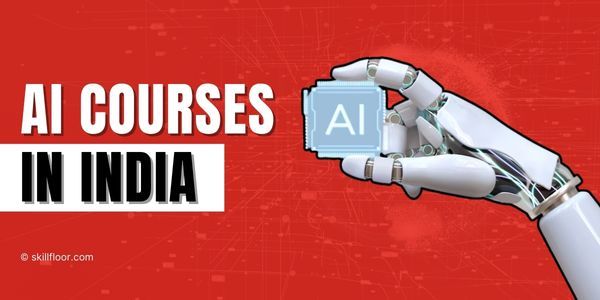Exploring the Future of Machine Learning and AI Technologies
Discover the exciting possibilities in the future of machine learning and AI technologies. Explore trends, advancements, and their impact on industries.

Machine Learning (ML) and Artificial Intelligence (AI) have revolutionized industries and daily life, shaping the way we work, communicate, and even make decisions. As these technologies continue to evolve at a rapid pace, it becomes increasingly crucial to explore their potential and impact on our future.
Advancements in Machine Learning
Advancements in Machine Learning have propelled the field to new heights, driving transformative innovations across various industries. One of the key breakthroughs is the development of more sophisticated algorithms, such as deep learning, which enable machines to learn complex patterns from vast amounts of data. This has significantly improved the performance of ML models in tasks like image recognition, natural language processing, and recommendation systems. Additionally, advancements in hardware, like Graphical Processing Units (GPUs) and specialized AI chips, have accelerated the training and inference processes, making AI applications faster and more efficient. Moreover, the rise of transfer learning and pre-trained models has democratized AI development, allowing researchers and developers to build powerful AI applications with less data and computational resources. As ML continues to advance, the potential for solving real-world problems and making significant strides in various domains grows, promising a future where AI technologies positively impact society in unprecedented ways.
AI in Everyday Life
-
Virtual Assistants like Siri, Alexa, and Google Assistant are part of our daily routines, answering questions and performing tasks.
-
Personalized product recommendations on e-commerce platforms, driven by AI algorithms, enhance the shopping experience.
-
Social media platforms utilize AI to curate personalized feeds and recommend content based on user interests.
-
AI-powered chatbots handle customer service inquiries and provide real-time support on websites and mobile apps.
-
AI algorithms optimize online advertising, targeting relevant audiences and improving ad performance.
-
AI-enabled language translation services break down language barriers and facilitate global communication.
-
AI-driven healthcare applications aid in medical diagnosis, drug discovery, and personalized treatment plans.
-
AI-powered navigation systems, like Google Maps, provide real-time traffic updates and optimal route suggestions.
-
AI algorithms are used in financial services for fraud detection, risk assessment, and algorithmic trading.
-
AI-powered recommendation systems suggest movies, music, and books based on user preferences, enhancing entertainment experiences.
The Rise of Autonomous Systems
The rise of autonomous systems marks a significant milestone in AI and technology. From self-driving cars to unmanned drones, these systems can operate without human intervention, demonstrating potential for revolutionizing transportation, logistics, and various industries. Although challenges remain in ensuring safety and regulatory compliance, the development of robust and reliable autonomous systems holds promise for enhancing efficiency, reducing human error, and transforming the way we interact with technology in the future.
Ethical AI and Responsible Development
Ethical AI and responsible development are critical considerations in the advancement of artificial intelligence. As AI technologies become increasingly powerful and pervasive, it is essential to address concerns related to data privacy, algorithmic bias, and potential societal impact. Ensuring that AI systems are developed and deployed responsibly involves adhering to ethical guidelines, promoting transparency, and actively engaging in discussions with stakeholders to mitigate risks and maximize the benefits of AI. Striking a balance between innovation and ethical principles is essential for building trust and ensuring that AI contributes positively to society while avoiding unintended consequences.
AI for Sustainability
-
AI can optimize energy consumption and improve energy efficiency in various sectors.
-
Predictive analytics and AI-driven models aid in weather forecasting and climate change prediction.
-
AI-enabled smart grids and energy management systems help reduce waste and promote renewable energy adoption.
-
Autonomous vehicles and AI-powered traffic management can reduce carbon emissions and improve transportation efficiency.
-
AI technologies support wildlife conservation efforts through wildlife tracking and monitoring.
-
AI-driven precision agriculture optimizes resource usage and enhances crop yields, contributing to sustainable food production.
-
AI-powered waste management systems enable better recycling and waste reduction strategies.
-
AI algorithms aid in identifying and addressing environmental hazards, such as air and water pollution.
-
AI can be leveraged for smart city planning, promoting sustainable urban development and resource management.
-
AI-powered sustainability initiatives contribute to a greener future by promoting eco-friendly practices across industries.
The Impact on the Workforce
The impact of AI and automation on the workforce is a topic of increasing importance and concern. While AI technologies can streamline processes, boost productivity, and create new job opportunities, they also have the potential to automate certain tasks and replace some human jobs. As AI adoption grows, the workforce will need to adapt through upskilling and reskilling to remain relevant in an AI-driven world. Striking a balance between technological advancement and workforce development is crucial to ensure that AI benefits society while empowering individuals to thrive in the changing job landscape.
Research and Innovation
Ongoing research areas and promising directions:
The field of Machine Learning and AI is continuously evolving, with several ongoing research areas and promising directions. Researchers are focusing on reinforcement learning, generative adversarial networks (GANs), explainable AI, and federated learning to improve model performance and interpretability. Quantum computing also holds immense potential for revolutionizing AI algorithms. As AI expands its reach into various domains, interdisciplinary research in areas like AI ethics, natural language understanding, and robotics continues to flourish.
Collaboration between academia and industry:
Collaboration between academia and industry plays a pivotal role in advancing Machine Learning and AI technologies. Academic institutions provide the theoretical foundation and innovative ideas, while industry brings real-world applications and resources. Joint research projects, internships, and knowledge sharing foster a symbiotic relationship. Such partnerships accelerate the development and deployment of cutting-edge AI solutions, ensuring that research findings have practical relevance.
Investment and funding trends:
The investment landscape in Machine Learning and AI is robust, with both public and private sectors recognizing their transformative potential. Venture capital firms, tech giants, and governments are allocating substantial funds to support AI research and development. Investment trends indicate a strong focus on startups specializing in AI applications across various industries, from healthcare and finance to autonomous vehicles and cybersecurity. These investments are driving innovation and propelling the field towards a future filled with AI-driven solutions.
Explore the future of AI and ML, several trends are emerging
The need for AI systems to provide transparent and understandable explanations for their decisions is gaining importance. This helps build trust and ensures that AI is accountable and ethical. AI is moving closer to the edge, enabling devices like smartphones and IoT sensors to perform AI tasks locally. This reduces latency and enhances privacy, paving the way for more responsive and secure AI applications. Governments and organizations are working on regulatory frameworks to govern AI development and use. Ethical AI principles will continue to be a significant focus to ensure responsible AI deployment. The synergy between humans and AI is becoming more pronounced. AI can assist experts in various fields, accelerating problem-solving and innovation.
The potential of quantum computing to revolutionize AI is a frontier to watch. Quantum AI algorithms could solve complex problems that are currently infeasible for classical computers.
AI's role in healthcare will expand further, from disease diagnosis to personalized treatment plans, drug discovery, and telemedicine. AI-driven personalized learning platforms will adapt to individual student needs, transforming education by providing tailored instruction and feedback. AI-generated art, music, and content will continue to blur the lines between human and machine creativity, opening new possibilities in the creative arts. AI-powered robots will become more autonomous and versatile, impacting industries such as manufacturing, healthcare, and logistics.
The future of Machine Learning and Artificial Intelligence holds immense promise and challenges. Advancements in ML, AI's integration into everyday life, the rise of autonomous systems, and the imperative of ethical AI development all point to a transformative era. AI's role in sustainability and its impact on the workforce underscore the need for responsible innovation. As we navigate this evolving landscape, striking a balance between technological advancement and societal well-being remains paramount, ensuring that AI continues to positively shape our future.






























































